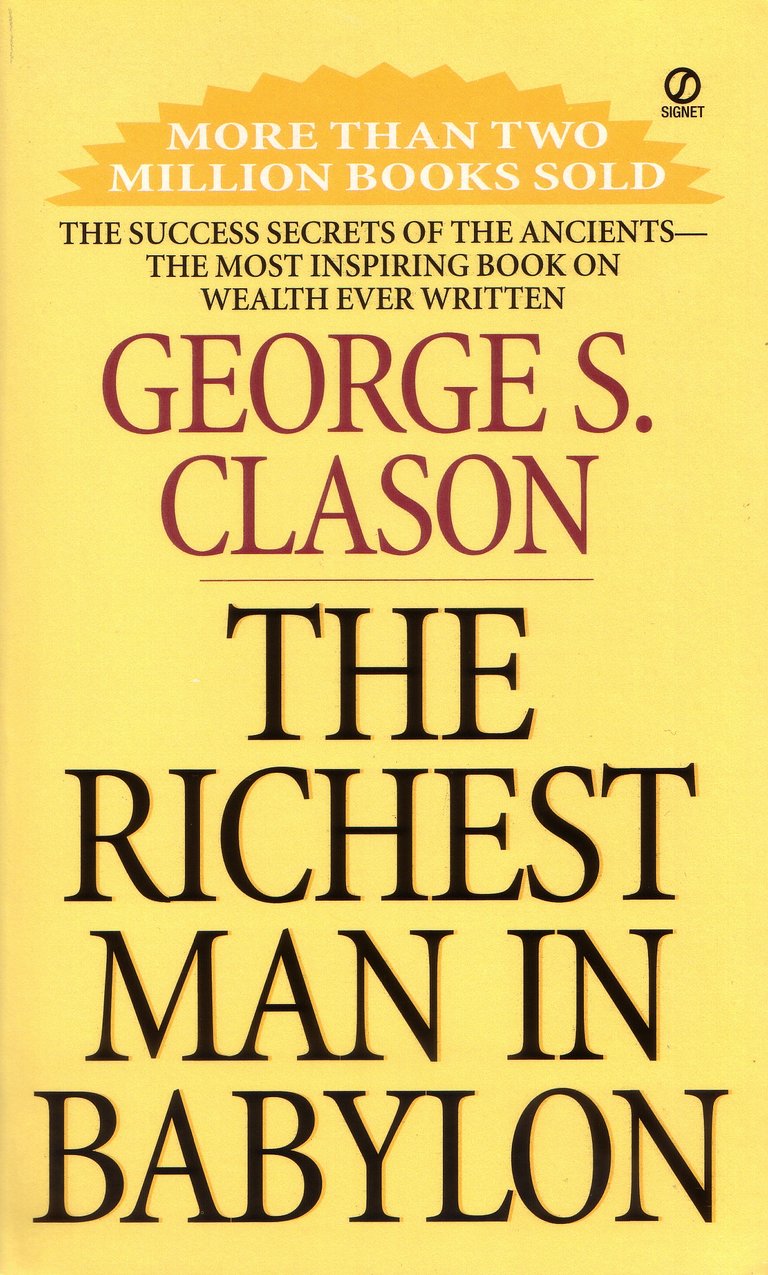I recently finished the book as recommended by @romeskie and lessons just resonated naturally. I have been already doing the stuff taught in the book thanks to my own drive to be more financially literate. The first few financial books I read talked about stocks and real estate investing. Robert Kiyosaki’s book series helped me understand what I needed to be doing with my financial health.

The Richest Man in Babylon reinforced Mr. Kiyosaki’s teaching which I learned a few years ago. The biggest regret I have is not being interested in money 10-15 years ago. Looking back, if I were to read this book, it would have changed the course of my life. I certainly wouldn’t be a doctor right now if that were to happen.
There are a lot of versions of the book that dumbs down the concepts quite well. Financial literacy is an underrated subject that will only be valued when you are raised by a culture that values money or when you start becoming an adult with bills to pay.
I would recommend this book to any beginner that wants to start their wealth seeking journey. The ideas are simple to understand, practical, and has years of wisdom compressed in a few sentences. While I already do the stuff being taught by this book, there are some lessons I have yet to fully master in execution.
The book’s appeal comes from how simple the lessons are taught in a way the young and old reader could understand. It’s never too late to start investing. It’s better to exercise more caution than feel regret. It’s better to sleep with your finances and future secured.
When you’re young, you can only think about the present and a future distorted from the real world (less responsibilities, no taxes to keep in mind or bills to pay). Romantic relationships, hormones going wild, no bed time, hormones, partying all night, hormones, academic demands, hormones, and whatever millennials are into nowadays.
I came from a culture where money talks are taboo. Money management is a center problem of a developing nation and the culture where I’m not supposed to be attached to worldly riches just hindered my progress on financial literacy.
Poverty is not inherited but the mindset that perpetuates does. I just realized I was in a rat race when I bothered to look. Becoming curious about the things you don’t know is a skill for survival. While I may enjoy a life where I don’t have to worry about money, I don’t want to be complacent because having learned about the nature of money helped me avert my future financial health from a disaster.
My career is just starting and the thought that I invested most of my years in education made me realize how much time I wasted not building wealth. Becoming a doctor takes about 9-10 years from college to graduate school and that spells out a huge investment on education. It’s impractical to have side jobs in a curriculum that demands a lot of time.
The worst part about this is 9-10 years is just the basic course as I would have to add a minimum of 3-4 years for a specialization. Becoming a doctor isn’t cheap and being in the middle of training will have you questioning why are you still there only to build your life late.
I’m currently prioritizing putting up more sources of cash flow and increasing my skill set on other fields aside from health care related work. Those art blogs I do on the sidelines are an exercise for some offline and online commissions.
Approaching my 30s and I’m not getting any younger. The story telling approach in this book helped me understand that it’s better to simplify the lessons as this has more impact compared to complicated jargon. I’m an advocate of financial literacy and I teach this stuff to anyone that wants to listen within the limits of what I know. It’s good to read literature like this once in a while to reaffirm my life decisions are on the right track.
A Hobby Illustrator
Posted Using LeoFinance Beta